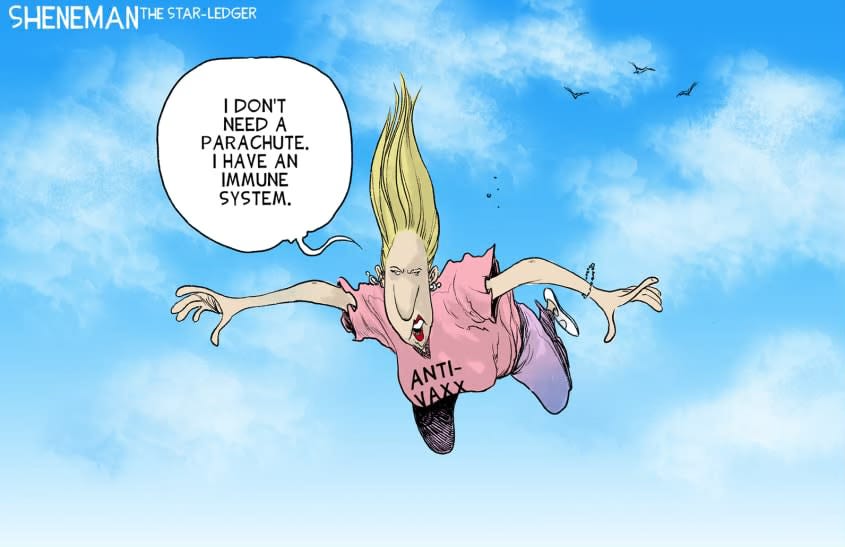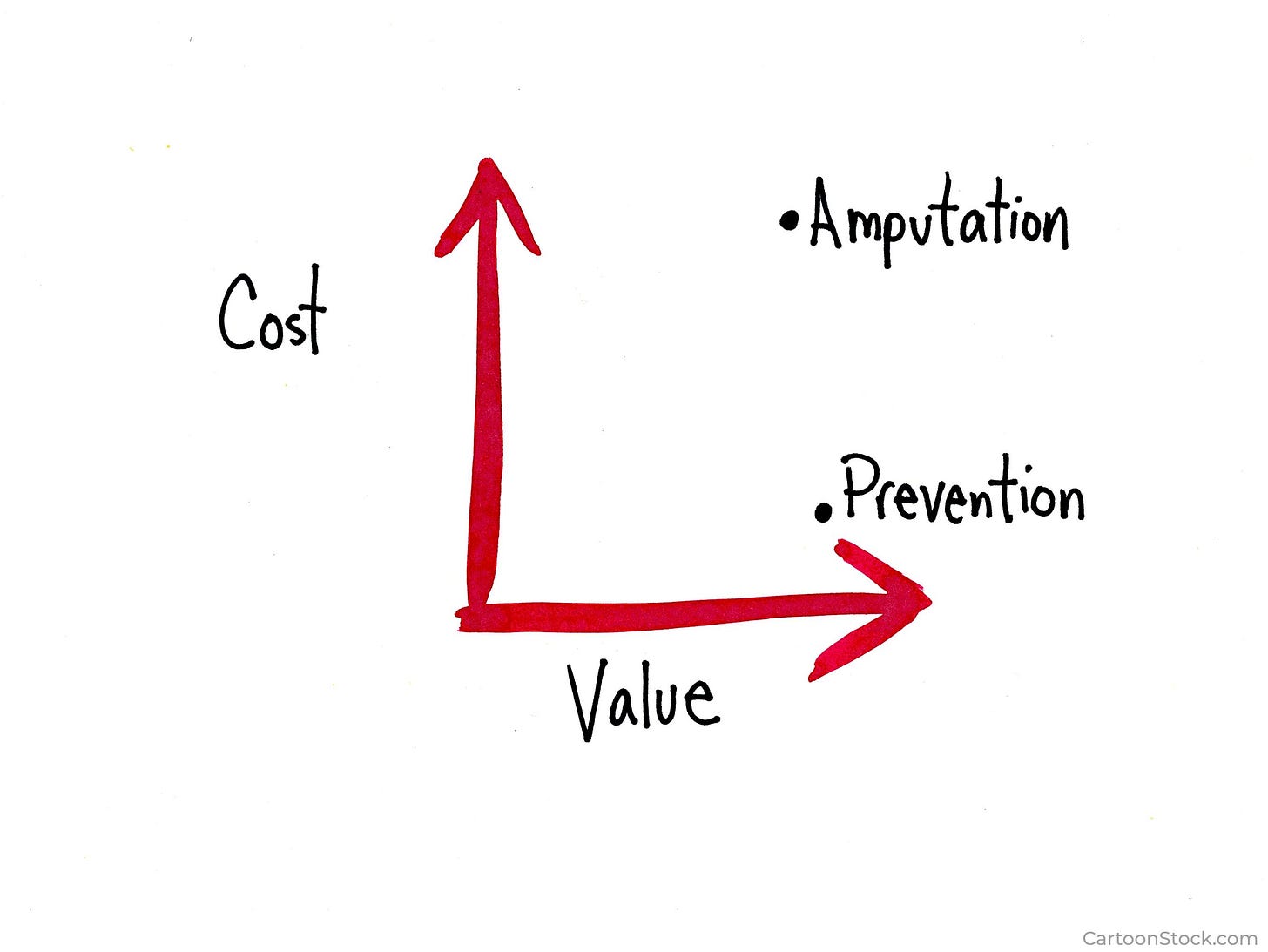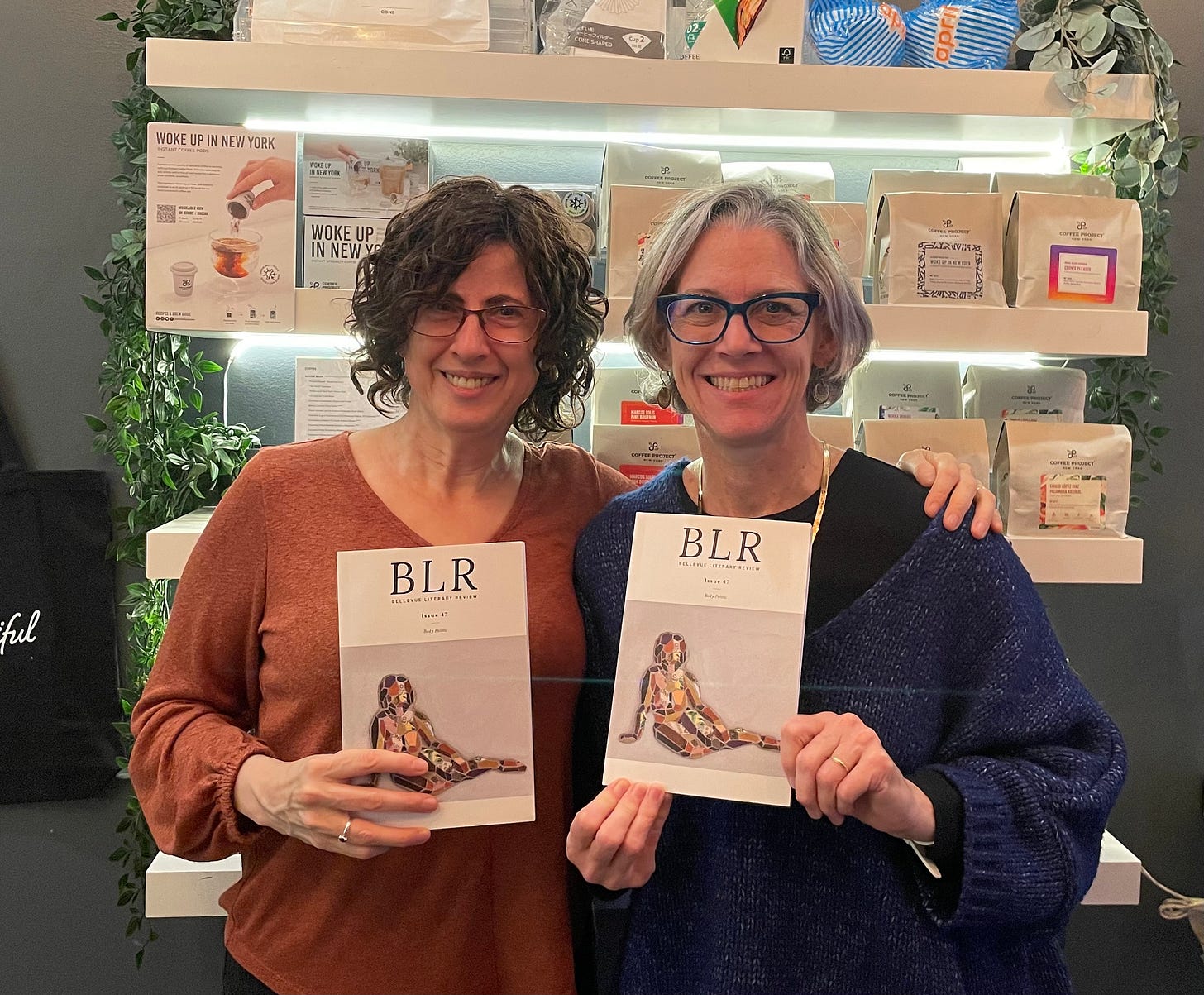Nurses understand that all treatments carry risk, even if RFK, Jr. does not.
New column in Cancer Nursing Today
Hoo-boy. These past few weeks have not been easy. I underestimated Trump’s desire to take a wrecking ball to our government and never expected he would give Elon Musk free rein to make that happen. Trump, Musk, and Trump’s other cronies seem to enjoy inflicting cruelty on people, and my heart goes out to all the federal workers who have suddenly lost their jobs.
For me, though, focused as I am on health care, the confirmation of Robert F. Kennedy, Jr. as Secretary of Health and Human Services was particularly upsetting because of his strident opposition to vaccines. In my writing and my life I try to lead with empathy, but I can’t find much empathy within myself for people who dogmatically and ignorantly oppose vaccines. The stakes are just too high. In Cancer Nursing Today I explain how Kennedy’s uninformed views on vaccination are based on a misunderstanding of medical science and how treatment decisions are made.
This difficult moment requires that nurses (and physicians, too, of course) talk honestly with patients about the science of vaccines and the complexities of health care decision-making in general. Articulating those complexities and outlining nurses’ responsibility to better educate patients about medical science is the goal of the column below.

Why Nurses Are Needed Ambassadors for Science
When I decided to return to school for an accelerated nursing degree, my mother was surprised that I needed to take chemistry. “I didn’t know nurses had to learn chemistry,” she said. Indeed. Also, anatomy, physiology, microbiology and genetics—all science-based classes, and though the nursing versions of these classes were not as hard as the pre-med versions (I know because I took some of each), they were very much knowledge and research-dependent. I’m making this point because medical science is under assault from our new presidential administration and understanding the nature of that assault will help nurses embrace and defend the grounding of our profession in scientific analysis.
The biggest present threat to science in health care arises from the confirmation of Robert F. Kennedy, Jr. as Secretary of Health and Human Services. Kennedy has a history of opposing vaccines on the basis of safety. However, calling Kennedy an “anti-vaxxer,” regardless of how appropriate that label is, fails to make clear exactly how unscientific and therefore potentially dangerous his views are.
During his Senate confirmation hearings, Kennedy repeatedly said that if he were shown evidence of the safety of vaccines, he would believe it, but he has been given such evidence and refuses to credit it while insisting on the harm of vaccines instead. And that’s the sticking point. As all nurses know, no medical treatment is 100% safe; we offer patients medications and surgeries based on an understanding of the risks of treatment versus the benefits.

For those who don’t know the drill, you can finish reading the column on the Cancer Nursing Today website, and then return here if you want to leave a comment. I’m always interested!
We leave for Spain on March 9
After spending fall in Santiago, Chile, Arthur and I will be living in Madrid and Barcelona for three months this spring. He is still on sabbatical and I am coming along to use our time there as a writer’s retreat. I’ve been traveling quite a bit during our January and February in the U.S. doing research for the book. It has kept me busy and I’m looking forward to focusing on writing again when we get to Spain. I also appreciate how lucky I am to be able to take such extended leave of my life in the U.S., especially now when the world feels crazy. You can look forward to more pictures and travel stories, which I hope provide a nice bit of escape.
Hugs to all and as my daughter Miranda would say, “Chin up darling—your tiara’s slipping.”
XO,
Theresa





You are exactly right in your post, Theresa; there are no guarantees in healthcare. When I was treating patients, every treatment plan discussed was an exercise in the assessment of a risk-benefit ratio. On occasion, I would have someone who expressed surprise that therapy wasn’t 100% foolproof, at which point I would need to communicate clearly the science behind my proposed plan to facilitate shared decision making.
I wish Mr. Kennedy fully understood this concept.
We are living in very scary times with this new administration. Even though I am unable to take the Covid vaccine due to a severe reaction to it, I highly recommend others take it. Fortunately at my nursing home we continue to administer the Covid vaccine in addition to the Flu, pneumonia and RSV vaccines. Best wishes on your trip to Spain.